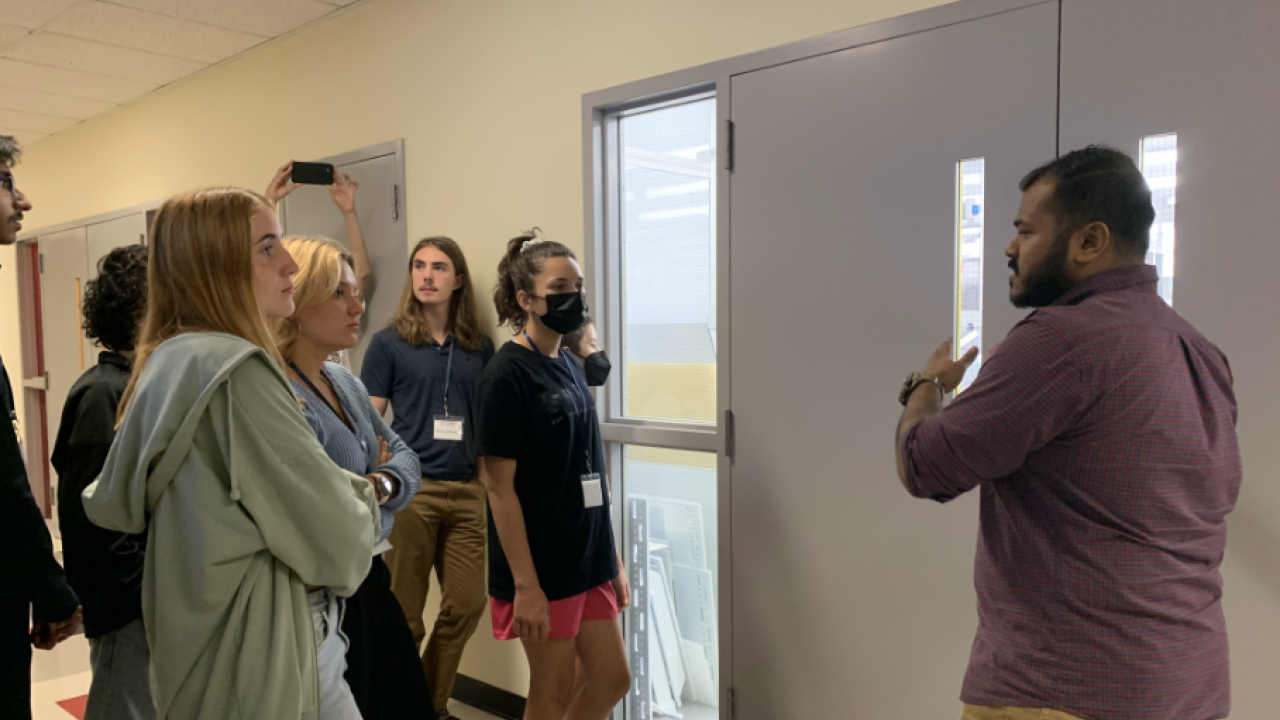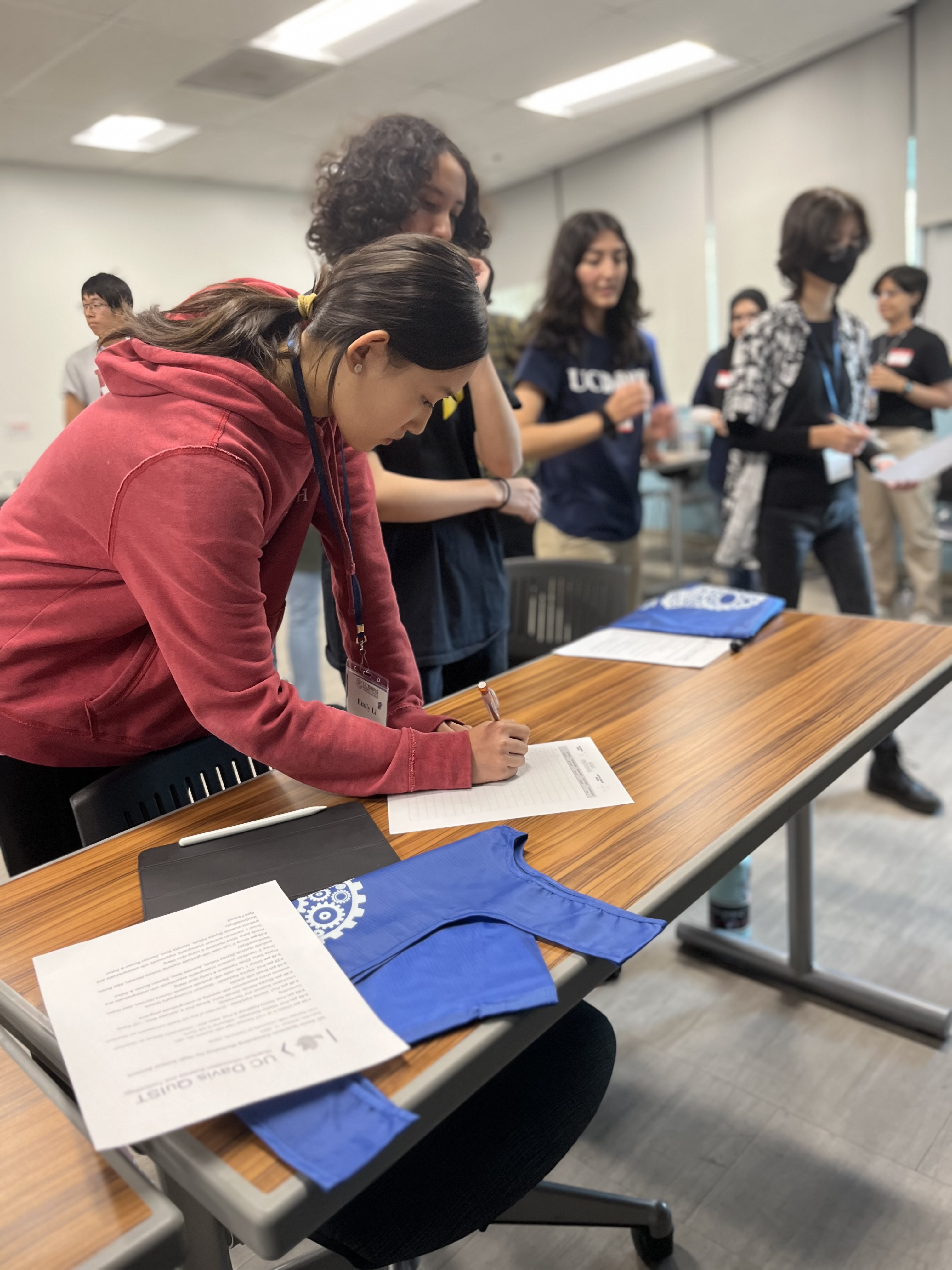
How Professors are Strengthening Quantum Computing Pipeline at UC Davis
High schoolers receive 'quantum leap' in quantum computing, college applications with workshop
"What is a qubit and what is it good for?" was but one of several questions professors from the University of California, Davis, recently posed to 22 California high school students as part of a new, annual workshop on quantum computing. The workshop served as a primer on quantum computing and offered the high schoolers a leg up — or a quantum leap if you will — with tips and best practices for their applications to UC Davis.
Marina Radulaski, an associate professor of electrical and computer engineering, and Isaac Kim, an assistant professor of computer science, hosted and organized the event with Assistant Professor of Physics Nancy Aggarwal and 12 student volunteers. The event was part of the UC Davis Quantum Information and Science Technology, or QuIST, Initiative that seeks to advance quantum information science research and education on campus, as well as Radulaski's National Science Foundation CAREER education plan to strengthen the quantum computing pipeline.

As part of the workshop, students received in-depth, introductory-level explanations of quantum sensing and a hands-on experiment with quantum cryptography communication. The students even had an opportunity to see this type of technology in action as they toured a quantum research lab and the College of Engineering's cleanroom, the Center for Nano-MicroManufacturing.
"Workshops like this expose students to modern technologies that are not yet taught in high schools and help strengthen workforce pipelines in emerging areas of national interest," Radulaski said. "We are already hearing from students that they enjoyed the workshop and feel more informed about quantum computing technologies and [confident] pursuing STEM areas in college."
To further increase the high schoolers' confidence in pursuing STEM at the college level, Zbynka Kekula, the president of the Quantum Computing Club at UC Davis, and colleagues gave an overview of the application process for incoming freshmen to UC Davis. Kekula encouraged students to tell a personal story by identifying a clear goal they want to achieve and the steps they have already taken to achieve it. Kekula also encouraged students to describe how their educational experience has set them apart from their peers.
"Some students liked seeing the introduction to qubits, some the interdisciplinary connections between quantum sensing with biology and chemistry, some found it cool to visit the labs, while the seniors appreciated discussing college application examples with enrolled UC Davis undergrads," Radulaski said.